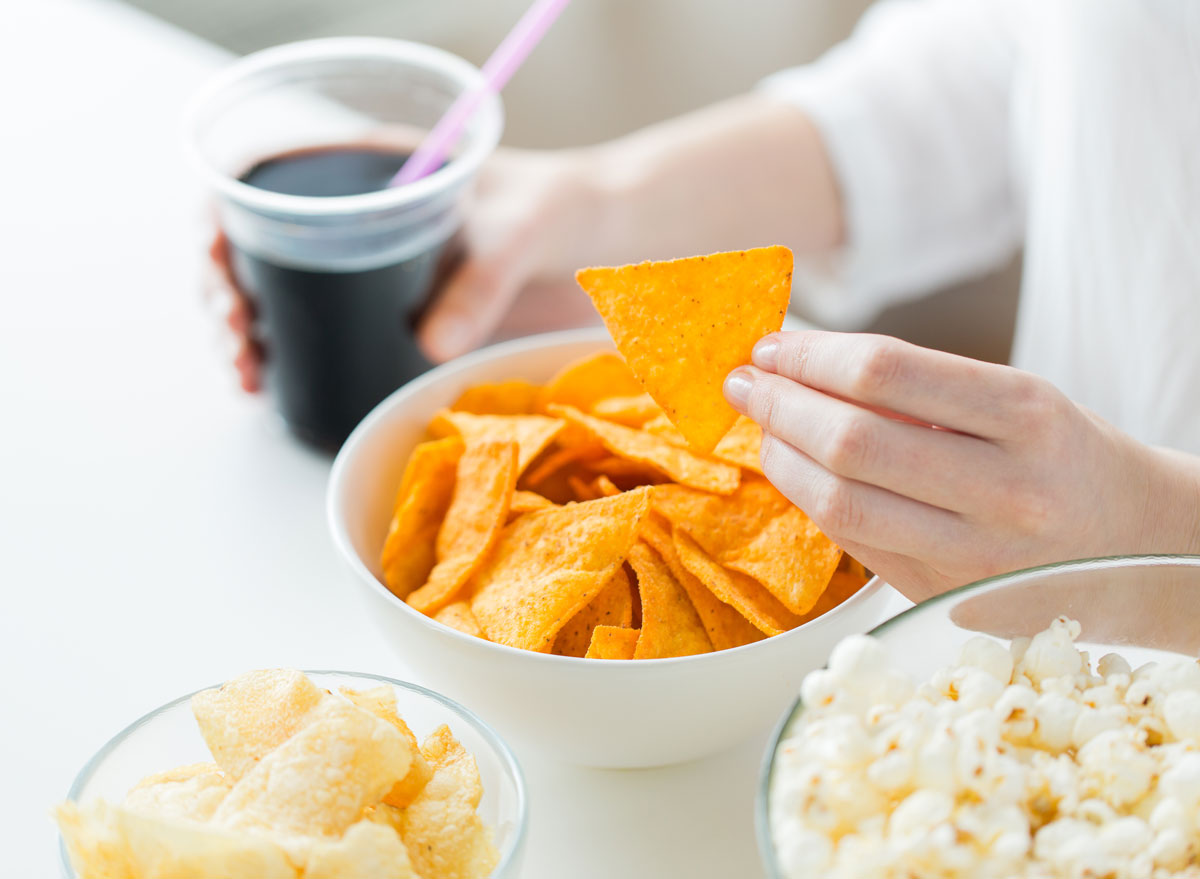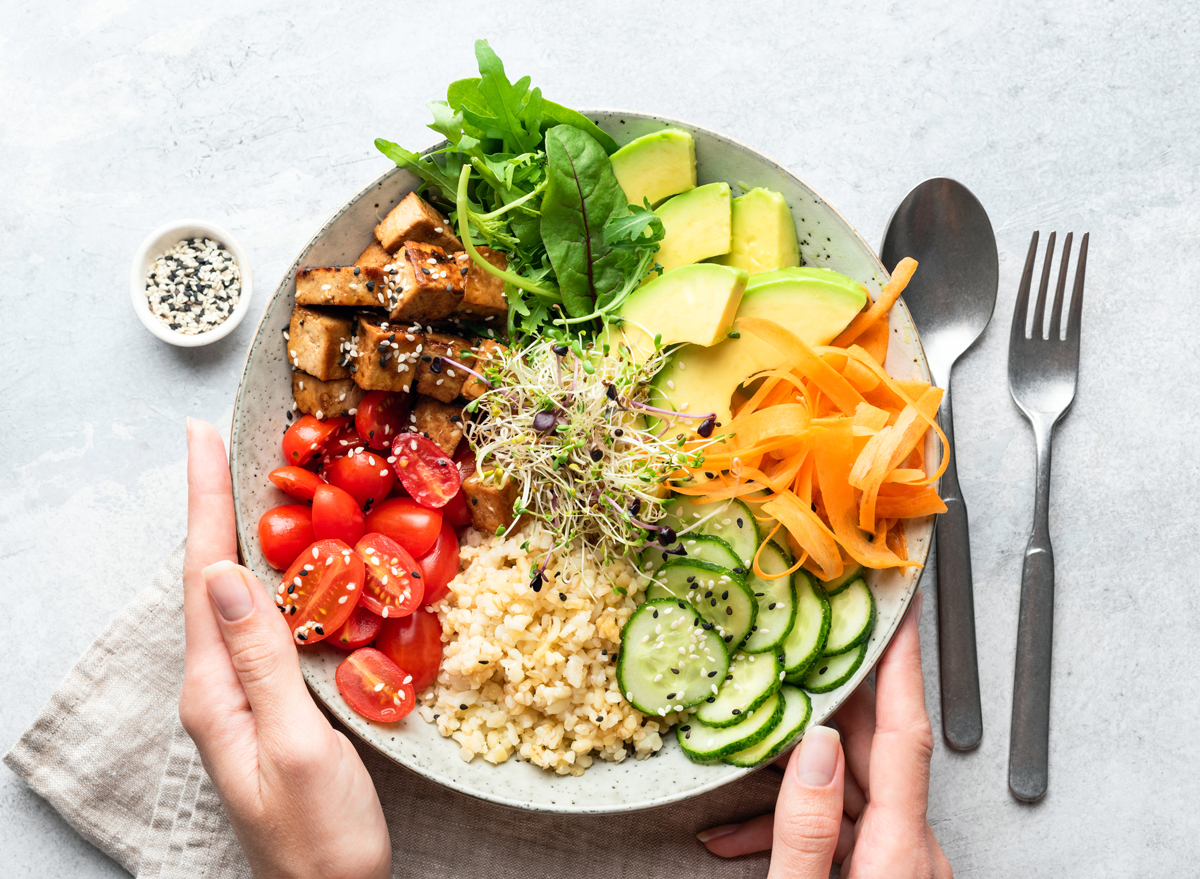The Foods To Eat To Lose Weight in Your Face

When trying to lose weight in your face specifically, some factors (like genetics) are out of your control. But there might be a reason your face looks plumper than it actually is: face bloat.
If you’re consistently waking up with a puffy face, the culprit could be more than just a high-sodium dinner. It may mean you have food sensitivities—such as gluten and lactose intolerance—which can cause bloating, inflammation, and even disrupt hormones.
More often than not though, your body is likely holding onto excess water, which can cause bloating or that feeling (and appearance) of fullness.
Abbey Sharp, RD, owner of Abbey’s Kitchen, explains that water weight is “extra water that’s hanging around the tissues, joints, and body cavities between cells.” And unfortunately, a lot of factors (including certain foods) can cause you to gain water weight.
So if you’re trying to combat a full face, look to make changes to your diet. Here are the foods to avoid and the foods to eat if you want to lose the bloat in your face, and for even more healthy eating tips, be sure to check out our list of The 7 Healthiest Foods to Eat Right Now.
Foods you should avoid

“There are many foods that can cause overall weight gain, water retention, and inflammation, all of which can show up in your face,” says celebrity chef and nutritionist Serena Poon, CN, CHC, CHN. “A simple general rule is to avoid as much processed and packaged food as possible.”
Often processed foods are packed with ingredients that “could cause weight gain, water retention, and inflammation—such as added sodium, refined carbohydrates and sugars, and trans fats,” says Poon.
So if you’re looking to reduce puffiness, best to steer clear of highly processed foods. You should also limit your sodium intake.
“Your body reacts to higher levels of salt intake by storing more water to keep sodium blood concentrations at a healthy level,” says Sharp.
The same thing goes for refined carbs—they get stored as glycogen. While glycogen is the body’s way of digesting carbohydrates, too much glycogen can translate to more water weight.
“Additionally, alcohol has a dehydrating and inflammatory effect and also impacts sleep quality, which can give your face a puffy appearance,” says Poon, who advises people to avoid drinking alcohol the night before special events or important meetings.
Excess alcohol consumption has also been linked to weight gain, which can lead to a fuller face. This is partly due to the way the body metabolizes alcohol—it’s high in calories and low in nutrients.
Foods you should eat

“While it really isn’t possible to target weight loss in your face, you can reduce overall water retention and improve skin health, which can show up as less puffiness in the face,” says Poon.
In order to avoid water retention, Poon suggests “drinking a lot of water and avoiding processed foods and alcohol.” She also recommends “[sticking] to a diet that is rich in vegetables and fruits, especially those that supply potassium (bananas, avocado, spinach), magnesium (leafy greens, nuts and seeds, beans), and vitamin B6 (chickpeas, sweet potato, banana).”
Poon also suggests rounding out your diet with “whole grains, omega-3 fatty acids, and lean proteins,” which provide the necessary fiber, healthy fats, and energy to help you feel full, fueled, and keep your digestion operating properly.
Eating foods full of antioxidants (think fresh vegetables and fruits) can also “help protect your skin from the signs of aging, which could include puffiness and dryness,” says Poon, who recommends piling your plate with “foods rich in omega-3 fatty acids” which “can give your skin a hydrated appearance.”
“Fresh pressed green juice can [also] give your body a burst of easy-to-digest nutrients, which anecdotally show up as radiance in your face,” says Poon.
Get even more healthy eating tips straight to your inbox by signing up for our newsletter! After, read these next: